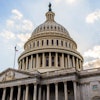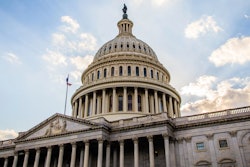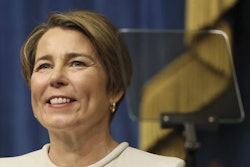When Dr. Irvin Reid was preparing his speech for inauguration as president of Wayne State University, he recalls his new close adviser, Arthur Johnson, giving him a seasoned perspective on the school and its role in Detroit.
“He said the urban agenda is our destiny” Reid recalled, saying that “inspirational” view for his speech served him well throughout his 10-year presidency. “He imbued me with that idea.”
Reid, who retired in 2008, was among a host of friends and colleagues who credit Arthur Johnson with helping them see their community – Motor City – in broader, positive ways. Indeed, Johnson devoted his life to helping others see the possibilities of human relations and what is now called “civility.”
Johnson, a Georgia native who came to Detroit in 1950 after his 1948 graduation from Morehouse College, had that effect on everyone, says Reid and others who reflected Wednesday on the stellar career of Johnson. He died at his home on Tuesday night after a long battle with Parkinson’s disease. He was 85.
Johnson was part of a trio of Black leaders — Damon Keith and the late Coleman Young being the others — to emerge in Detroit between 1950 and 1975 and be credited with being relentless boosters of the Motor City and of civil rights for all of its citizens. They are credited with being among the deep thinkers who helped navigate a meaningful role beyond that of worker for Black Detroiters, nurturing, grooming and supporting a plethora of civic, religious, labor, academic and political leaders of all races along the way.
“Arthur Johnson was an important, extraordinary person in the life of the city over the past 60 years,” says Eugene Driker, Detroit native, veteran corporate lawyer and member of the Wayne State board of governors for nearly a decade. “He could speak from strength without ever having to resort to stridency,” says Driker. “He could command the iron fist with a velvet glove.” Driker says Johnson never had to raise his voice, pound a table with his fist or threaten. “He used his persuasive skills to get people to act.”
Indeed, Johnson, a classmate of the late Rev. Dr. Martin Luther King Jr., is remembered as being quietly effective in most every endeavor he pursued.
Hired in 1950 by the Detroit Branch of the National Association for the Advancement of Colored People, or NAACP, Johnson is credited with being the force behind establishment of the branch’s annual Freedom Fund Banquet. Soon the Detroit banquet became, and remains, the largest single fundraising event for the NAACP in the nation, drawing thousands of people including the top local, state and federal elected officials regardless of political persuasion. The event also attracts college presidents, auto company chief executives and other business leaders, religious, social welfare and labor leaders.
Johnson’s prized collection of photographs, many featured in his 2008 memoir, Race and Remembrance includes a galley of images of him with many of his guests, a virtual who’s who attending public events and dinners at his home. They range from singers Josephine Baker to Sammy Davis Jr., to retired U.S. Supreme Court Justice Earl Warren and author Langston Hughes.
In the course of strengthening the Detroit Branch of the NAACP, Johnson helped organize and steer the organization’s battles to end racial discrimination in the workplace, in public schools and housing.
By the early 1960s, Johnson’s tireless work had drawn the attention of state leaders at a time when the state was establishing the nation’s first civil rights commission codified in a state constitution. They, and his close friend, now retired federal Judge Damon Keith, persuaded Johnson to leave his NAACP post to help run the commission. Johnson brought the same enthusiasm to that assignment and, in the early 1970s, to the Detroit Public Schools where he served as community relations chief during a turbulent era marked by the movement for community control of schools.
“Arthur was an icon,” recalls Detroit native and attorney Elliott Hall. Hall credits Johnson with helping him lead the NAACP branch after his election to a two year-term (1972-74). “He was all over the place, with a meaningful purpose,” says Hall. “He was very assertive and didn’t stand for a lot of nonsense. He was on point and on focus. If he served on your board, you could rest assured he was going to give you 100 percent.”
At Wayne State, where Johnson served two presidents as a top adviser over more than two decades, Driker says Johnson was the champion for civil rights and diversity, long before it became an agenda item at other schools across the country. “He opened their eyes (the presidents he served) perhaps to things they hadn’t recognized,” says Driker.
In his memoir, published by Wayne State University Press, Jonson titles one chapter “Searching for the Good Life.” He quickly flags readers off the notion that he is reflecting on some formula he may have developed over time, noting his life was not always good. He grew up poor in rural Georgia and, as a father and family man in Detroit, lost two children to suicide, he acknowledges. Still, he remained upbeat.
“In writing about the ‘good life,’ I hasten to say that I am not referring to material and financial wealth,” Johnson wrote. “I am not referring to fame or celebrity status, or living a long life, either, even though that, too, is a wonderful blessing. I do not intend to talk about the role of technology in enriching and extending our lives. Ultimately, I believe, a good and fulfilling life is rooted in relationships, core principles and a deep sense of purpose,” Johnson wrote.
In that context, Johnson indeed lived the good life.















